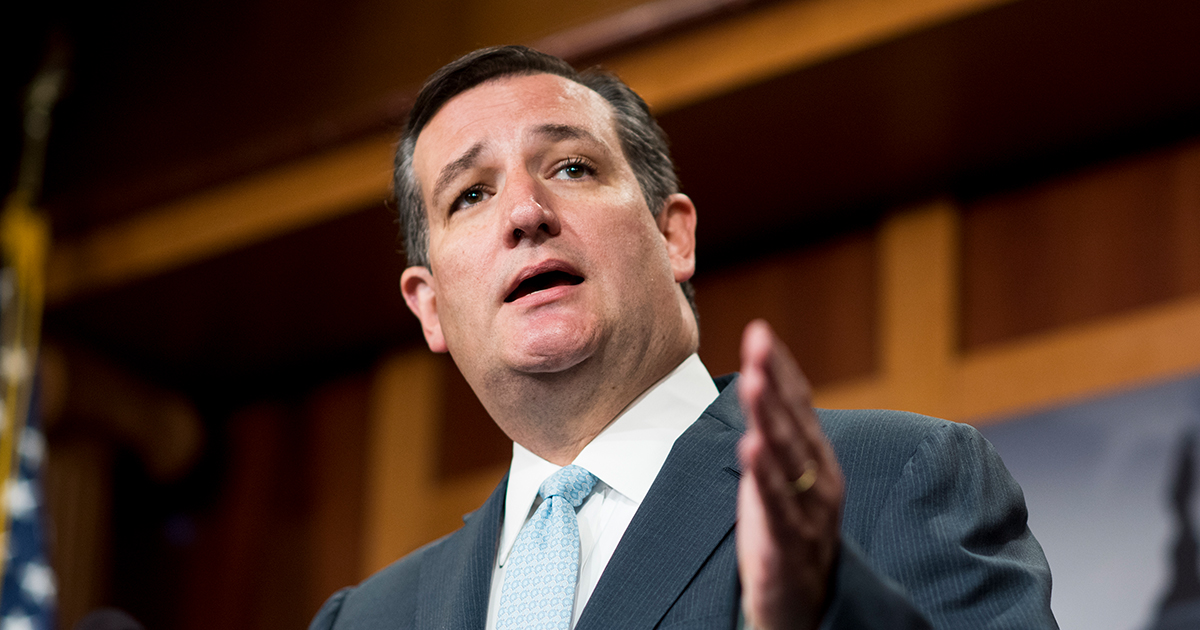Republicans' Plans for Hillary Clinton Could Bring Government to a Halt
By:
After an 18-month descent into the nine circles of political hell, I've flashed forward in my mind to Election Day. I'm drinking red wine and watching the results as Hillary Clinton is declared the 45th President of the United States. In that moment, I imagine the scope of reactions around the country, ranging from joy and celebration, to relief, all the way down to skepticism, regret, despair and, in the case of the Republican nominee, denial. After that, what comes to mind is President Gerald Ford's reassuring post-Watergate address, in which he calmed a nation by saying: "Our long national nightmare is over."
Except it's not over. Not by a long shot.
If you believe the warnings of some Republicans, Hillary's first 100 days may be less of a honeymoon and more of a contentious divorce proceeding.
On Friday Morning, FBI Director James Comey announced the department will be continuing its investigation of Clinton after learning of "the existence of emails that appear to be pertinent to the case."
But even before that bombshell dropped, Congressional Republicans were prepping for war against the Clinton administration. According to a recent Washington Post article, Republicans are gearing up for more investigations into the former secretary of state's emails and reviving the seemingly never-ending Benghazi scandal.
Assuming Clinton's campaign survives this latest scandal, she'll face Republicans dead set on building a legislative wall, putting several policy items and basic governmental functions at risk. Here are some of the most urgent tasks that could go undone if Republicans fulfill their obstructionist promises.
Fixing the Affordable Care Act
Even though 20 million people have been insured under the Affordable Care Act, premiums for those with specific plans are set to rise dramatically in 2017, while some insurers are fleeing exchange markets created by the landmark healthcare legislation. There are fixes that Congress could enact, but that would require the GOP to abandon their long-standing effort to destroy the program altogether.
After over 60 House votes to repeal the law, and a 2015 Supreme Court decision that threatened to gut the legislation based on its precise wording, Republicans could work with the new president on specific fixes. That doesn't mean they will.
Filling the Vacant Supreme Court Seat
The stonewalling of Judge Merrick Garland, who President Barack Obama nominated to fill the Supreme Court seat vacated by the death of Justice Antonin Scalia, is one been one of the GOP's most unabashed acts of obstruction.
 Wikimedia - wikimedia.org
Wikimedia - wikimedia.org
Following Scalia's death, Republicans realized they were in a virtual no-win situation. They could either confirm Garland, a moderate judge who might not vote their way on issues like gun control and reproductive rights, or slow-play the confirmation with the justification that the next president should make the appointment. That strategy has changed as a Clinton presidency has begun to seem more likely. Senator John McCain (R-Ariz.) said Republicans "will be united against any Supreme Court nominee" put up by a President Clinton. Senator Ted Cruz (R-Texas) has thrown down with his comment that "there is certainly long historical precedent for a Supreme Court with fewer justices." And there is, if you go back to the 19th Century.
 Bill Clark/CQ Roll Call/AP - apimages.com
Bill Clark/CQ Roll Call/AP - apimages.com
It is a typically snarky Cruz-ian debate trick to cite some arcane factoid and state it as if it represents the totality of the argument. Let's just unpack the lie: Republicans are freaking out that a more liberal court could overturn Citizens United and rule against them on social issues and they will hide behind any flimsy argument to stop that from happening.
Repairing America's Infrastructure
One area where there might be hope for bipartisan cooperation is a deal on infrastructure spending, which would be paid for by repatriating corporate tax dollars stashed overseas, as noted in an article on Bloomberg.com.
Whether this could be template for bipartisan cooperation, or a one-off that each side could promote for their own political gain, remains to be seen. What is clear is that the 8-year Republican gambit has failed. The anger they fomented and obstruction they traded in unleashed the Trump phenomenon. Now, it's too late to put the genie back in the bottle.
The presidency seems likely to remain in Democratic hands, with the Senate possibly flipping blue as well. This will leave them with an interesting dilemma. Either do their jobs, or double down on obstruction and play for time, gambling that the Senate will turn red again in 2018, and that they could dig up a less Trumpy Trump to run in 2020.
If 2017 brings more show trials and bogus investigations, the anti-Washington anger that manifested itself on both ends of the political spectrum could make for a unique chorus of voices demanding those in government stop playing politics, and actually govern. And given the need for action on The Supreme Court, immigration reform, prison reform, tax reform, Wall Street reform, national security, education, the Department of Veterans Affairs, the minimum wage, renewable energy policy, and climate change, the demand for effective governance should be clear.
